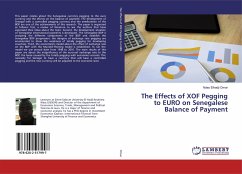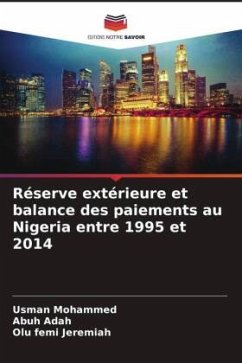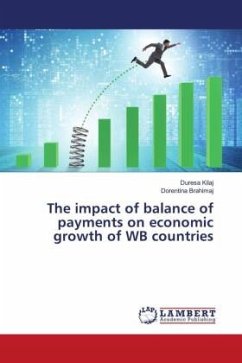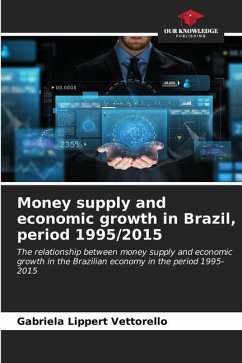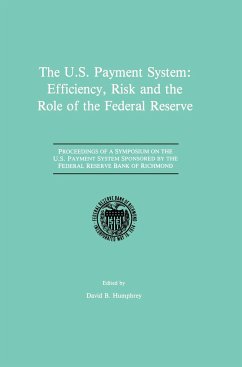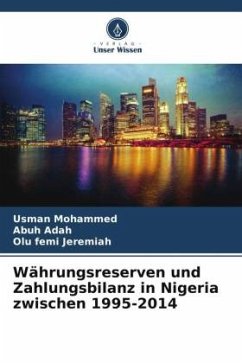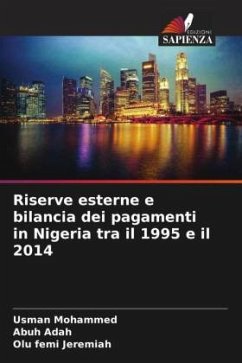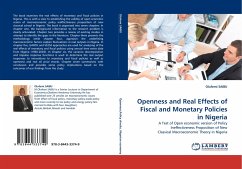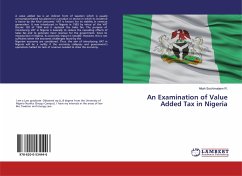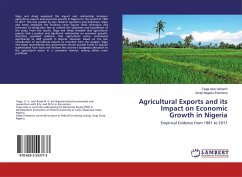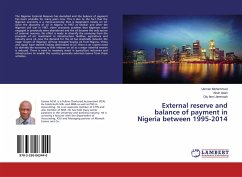
External reserve and balance of payment in Nigeria between 1995-2014
Versandkostenfrei!
Versandfertig in 6-10 Tagen
22,99 €
inkl. MwSt.

PAYBACK Punkte
11 °P sammeln!
The Nigerian External Reserves has dwindled and the balance of payment has been unstable for many years now. This is due to the fact that the Nigerian economy is a mono-economy that is dependant mostly on oil. Since the discovery of oil in Nigeria in 1957 at Oloibiri and after the Nigerian civil war in 1967, other economic activities that Nigerians were engaged in previously were abandoned and the oil became the only source of external reserves. No effort is made to diversify the economy from the proceeds of oil. Investment in infrastructure facilities, agriculture and industry were nil, now t...
The Nigerian External Reserves has dwindled and the balance of payment has been unstable for many years now. This is due to the fact that the Nigerian economy is a mono-economy that is dependant mostly on oil. Since the discovery of oil in Nigeria in 1957 at Oloibiri and after the Nigerian civil war in 1967, other economic activities that Nigerians were engaged in previously were abandoned and the oil became the only source of external reserves. No effort is made to diversify the economy from the proceeds of oil. Investment in infrastructure facilities, agriculture and industry were nil, now the demand for the oil has drastically reduced, the major buyers of Nigerian oil have stopped buying oil from Nigeria, China and Japan have started finding alternatives to oil, there is an urgent need to diversify the economy so that reliance on oil as a major external reserve is reduced. There is need to massively invest in agriculture industries and infrastructure to enable the country generate external reserve from these activities.



